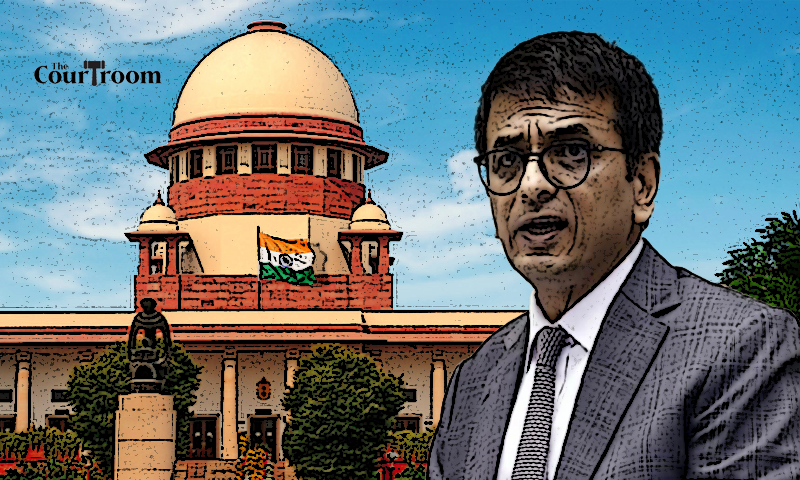Chief Justice of India, DY Chandrachud, expressed serious concerns today, April 8, regarding the extended periods some High Court judges take to reserve judgments after completing the hearing.
The Chief Justice highlighted the issue of judges reserving matters for over 10 months without delivering a judgment. He stated, “What is a matter of concern is judges reserving matters for over 10 months without judgment. I wrote a letter to all the High Court Chief Justices, please inform me of the details of the cases which are pending for more than 3 months after the judgement was reserved, so that we have a list of the pending cases after their judgements were reserved for more than 3 months.”
After circulating the letter, he was informed that several judges had de-part heard the matters and released them. He emphasized the negative implications of this practice, saying, “It makes it worse! Because parties now have to engage a fresh set of counsels, the same counsels all over again. The case is heard all over again…”
Justice Chandrachud stressed that such practices significantly undermine the principles of judicial efficacy and timely justice. The prolonged delay not only forces parties and lawyers to undergo the litigation process anew but also compromises the quality of judgments. This is because the oral arguments no longer remain fresh in the judicial mind.
He further elaborated, “So when you release a matter pending for 10 months to 2 years, the judiciary’s time is wasted. After 10 months honestly, I do not know whether a judge remembers the matters because oral arguments ceased to matter, it’s only what you have on paper which you decide the matter on.”
Concerns Raised by the Chief Justice
The Chief Justice’s remarks shed light on a pressing issue within the judicial system, where delayed judgments lead to inefficiencies and potential miscarriages of justice. Such delays not only burden the parties involved but also waste the valuable time and resources of the judiciary.
Justice Chandrachud’s proactive approach, in reaching out to High Court Chief Justices for information on long-pending cases, reflects a commitment to improving the efficiency and effectiveness of the judicial process. His emphasis on the importance of timely judgments underscores the need for a more streamlined and responsive judicial system.
Also read: Toxicity and Abuse: Recent Slap gate incident Highlights The Dark Reality of Law Firms
Implications of Delayed Judgments
The delays in delivering judgments have significant consequences. Parties are forced to revisit the litigation process, engaging new sets of counsels and re-presenting their cases. This not only increases the financial and emotional burden on the parties but also erodes confidence in the judicial system.
Furthermore, the quality of judgments may suffer due to the extended time lapse. Oral arguments, which play a crucial role in shaping the judge’s understanding and decision-making, lose their impact over time. Decisions become increasingly reliant on written submissions, potentially overlooking the nuances and complexities presented during oral arguments.
Chief Justice of India, DY Chandrachud’s concerns about the delayed judgments by High Court judges highlight a critical issue that needs immediate attention. The prolonged delays not only undermine the principles of judicial efficacy and timely justice but also impact the quality and integrity of the judicial process.
Addressing these concerns is crucial to restoring confidence in the judicial system and ensuring that justice is not only done but is also seen to be done in a timely and efficient manner.
Share your news, articles, deals, columns, or press releases with us! Click the link to submit and join our platform today.


